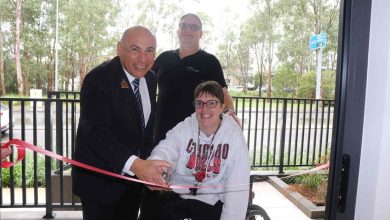Meet Our Team: 5 Minutes with Sandra (Audiometrist) Discussing Tinnitus
You’ve been working for Ear studio for almost 3 years now, what makes you passionate about working as an Audiometrist?
I am able to really help people. It may look like I just prescribe hearing aids, but this can have a major impact on a person’s quality of life. It can reconnect them to their social life, their families, activities they love and can help them to live a happier and fuller life. I also enjoy working with people who have tinnitus.
What does it mean to “have tinnitus” and what does it sound like?
Tinnitus means that you perceive a sound inside your ear or inside your head that other people cannot hear. It can present in diverse ways. For some people it is a high whistling sound, for other people it can be a chirping sound like a cicada, others describe it as a buzzing or a static sound and sometimes people have even said it is a roaring sound.
What does a Tinnitus Assessment involve?
We begin by taking a detailed history to understand when the tinnitus started and the circumstances surrounding it. We then check the overall ear health and complete an in-depth hearing test. We perform a “tinnitus match” if it is appropriate and necessary.
A tinnitus match is where we attempt to recreate the sound of your tinnitus, through headphones, to help us understand what you are experiencing, then we try to mask it. This means we will create a custom sound to help free you from the intensity of the tinnitus, while you are hearing that sound.

In most instances there is no medical “cure” for tinnitus. As a result many people often hear “nothing can be done”. However, it is a very common misconception that nothing can be done for someone living with tinnitus.
There are a number of different things that might bring you relief such as sound therapy, for some people a hearing aid might be suitable and for others there might be more support through programs like CBT (Cognitive Behavioural Therapy). It is important to understand that every case is very different, as is the way we manage it.
What happens if I have not noticed tinnitus before and it begins suddenly? Should I be worried?
If you have a sudden persistent onset of tinnitus, it is important to have it checked promptly. Sometimes tinnitus may happen in connection with sudden hearing loss (usually in one ear) and getting urgent medical attention is absolutely crucial and may successfully prevent it from becoming a permanent tinnitus or hearing loss. Most medical practitioners will ask to see a report from a hearing test prior to considering any treatment.
Can you share a story about how you have helped someone suffering from tinnitus?
A patient of mine experienced tinnitus and communication difficulty despite having hearing aids for some years from a different provider. She had been suffering from strong tinnitus, and she also had quite considerable hearing loss.
I managed to fit her with better hearing aids; this really helped her by solving communication problems she had been experiencing. Also, as a by-product of well-fitting hearing aids, it has also remarkably reduced her tinnitus. This means she feels much more relaxed in her day to- day life, and now she no longer has trouble going to sleep at night.
Is there anything people can do from home if their tinnitus is really getting to them?
The main thing you can do is to look after yourself, make sure you are having enough sleep and take some time out for your physical and emotional well-being. Try to do something every day that brings you joy and reduce any stressors and pressures that you may be experiencing.











